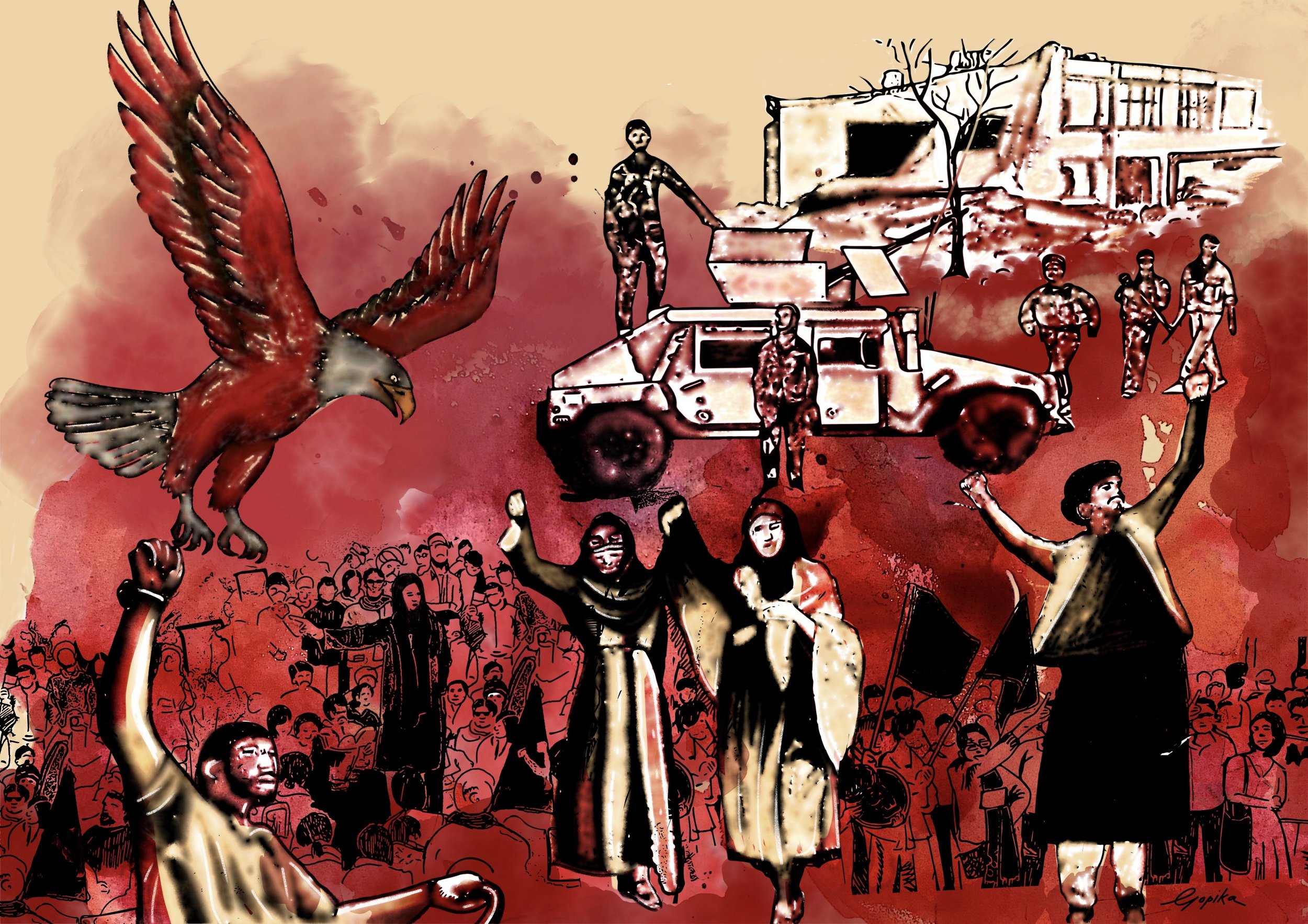
Imperialism in South Asia
Issue 7. Fall 2022
August 30th 2022 marked one year since the formal withdrawal of US military forces from the ‘War on Terror’ theatre of Afghanistan, an event that re-centered questions about imperialism in the 21st century. Our special issue for summer 2022 examines imperialism from the vantage point of South Asia. We seek to understand the current form of imperialism(s) in the region, in the context of the American withdrawal as well as discourses around “global China” and Russian expansionism. We also ask how the Left in South Asia must confront imperialism ideologically and politically, especially in the face of resurgent authoritarianisms across the region, many of which seek to mobilize popular anti-Western sentiment in the name of opposing imperialism.
We begin with an in-depth interview with Priyamvada Gopal, renowned scholar on race, colonialism and imperialism. Gopal traces the authoritarianisms currently sweeping the region to a state structure inherited from colonialism as well as ongoing collaborations between these regimes and imperialisms, old and emergent. We also discuss the politics of anti-imperialism and ‘decolonization’, with Gopal emphasising that our anti-imperialist politics must be waged in both material and ideological terms. Against certain fashionable trends, she argues that anti-imperialist activists in the global South should consider concepts like freedom, emancipation and universalism – concepts that inspired past anti-colonial movements – as part of their own tradition, not simply European inventions. In particular, she excoriates a dated, campist anti-imperialist politics which boils down to a simplistic anti-Westernism and fails to confront the regional and international interests of various imperialisms that now exist in our multi-polar world. An anti-imperialist politics must, she maintains, be both internationalist and attentive to local contextual configurations of power.











Part 2 of our two part discussion with leaders of Pakistan’s three major leftist parties – Aasim Sajjad Akhtar (Awami Workers’ Party), Ammar Ali Jan (Haqooq-e-Khalq Party) and Syed Azeem (Pakistan Mazdoor Kissan Party).